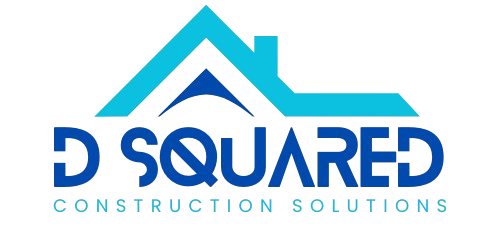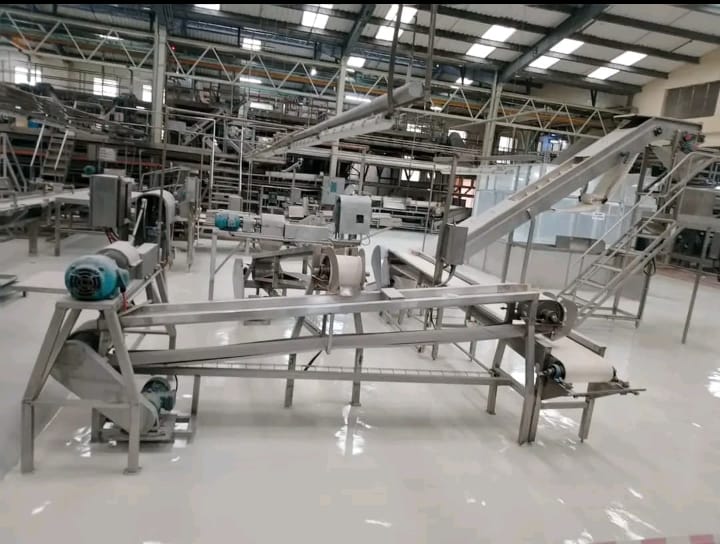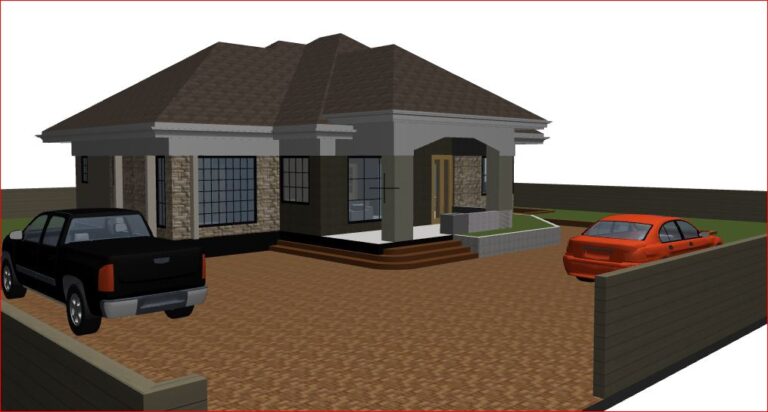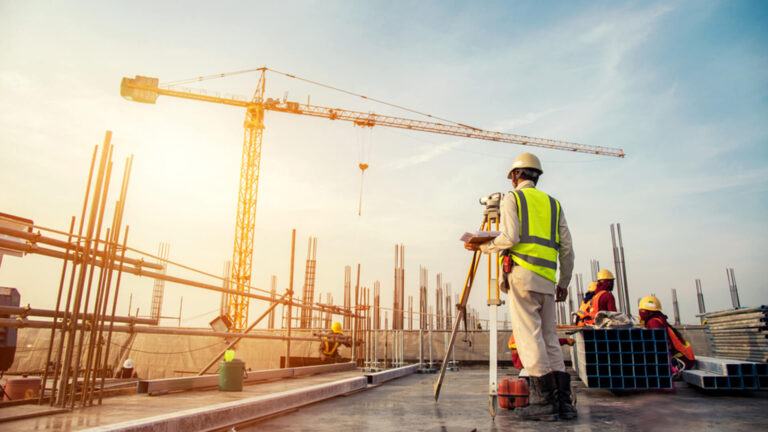When it comes to modern, durable, and low-maintenance flooring options in Kenya, epoxy floor finishes are becoming increasingly popular in both residential and commercial spaces. Whether you’re upgrading your home, setting up a factory, showroom, office, or garage, epoxy flooring offers a clean, professional look combined with unmatched strength.
We explore what epoxy flooring is, its benefits, applications, cost, and the installation process in Kenya. If you’re looking for professional epoxy floor finish installation in Kenya, this guide will help you make an informed decision.
Table of Contents
What is Epoxy Flooring?
Epoxy flooring is a protective and decorative surface coating made by mixing epoxy resin with a hardener. When applied to concrete floors, it forms a strong, chemical-resistant, and glossy finish that enhances the floor’s durability and appearance.
Epoxy floors are not just about aesthetics—they’re also known for their long-lasting performance, ease of cleaning, and resistance to stains, water, chemicals, and heavy foot or vehicle traffic.
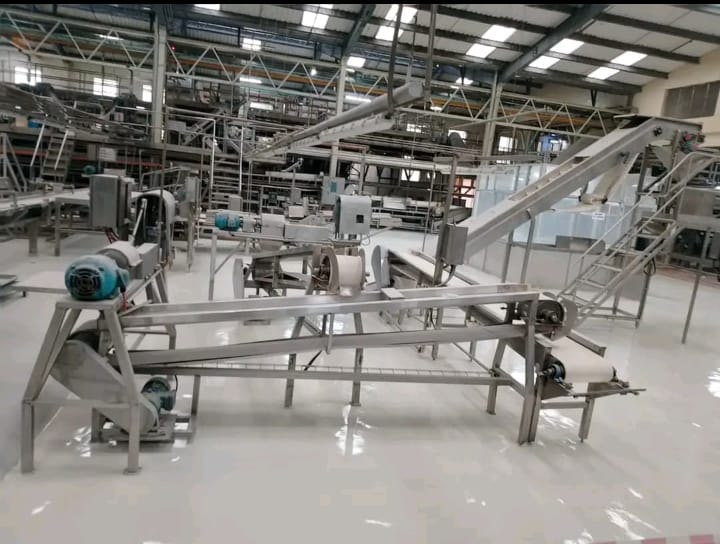
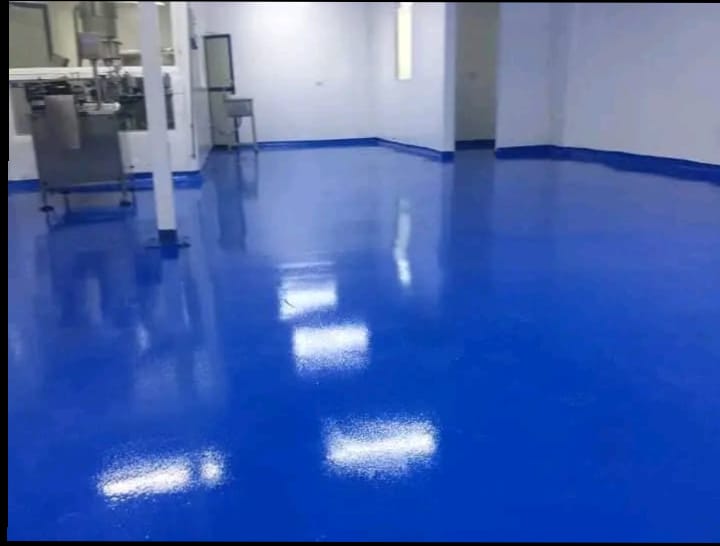
Benefits of Epoxy Floor Finish in Kenya
Epoxy flooring has become a top choice for both residential and commercial clients in Kenya due to its durability, functionality, and visual appeal. Whether you’re upgrading your home in Nairobi, a garage in Nakuru, or a factory floor in Mombasa, epoxy delivers long-lasting value with minimal upkeep. Below are the detailed benefits that make epoxy floor finishes an ideal investment:
Durability for High-Traffic Areas
Epoxy flooring is extremely tough and long-lasting. Once cured, the epoxy coating forms a hard, seamless surface that withstands heavy foot traffic, vehicle movement, and mechanical operations. It is highly resistant to chipping, cracking, and abrasion, making it ideal for industrial warehouses, car parks, schools, retail shops, and other high-use environments.
In Kenyan environments where dust and foot traffic are common—such as busy homes or public buildings—epoxy offers a strong layer of protection that maintains its integrity for years without needing replacement.
Easy and Low Maintenance
One of the biggest advantages of epoxy flooring is how easy it is to clean and maintain. The surface is smooth, non-porous, and seamless, which means that dirt, dust, and liquids sit on top of the floor and are easily wiped away.
For homes, this means less time mopping and scrubbing. For businesses, it translates to reduced cleaning costs. Epoxy is especially ideal in hospitals, restaurants, showrooms, and garages, where hygiene is a priority and spills must be dealt with quickly.
Customizable Aesthetic Appeal
Epoxy floors are not just functional—they are also beautiful. The finish can be tailored to suit a wide range of tastes and design themes. Whether you prefer a sleek modern look, a metallic sheen, or a textured flake finish, epoxy can be customized in color, texture, and pattern to reflect your brand or personal style.
In Kenyan commercial settings, such as beauty salons, hotels, or corporate offices, epoxy flooring can instantly elevate the appearance of a space, giving it a clean, polished, and professional finish. Some even opt for 3D epoxy effects that simulate depth and dimension, perfect for showrooms or high-end residential interiors.
Chemical and Oil Resistance
Epoxy flooring’s chemical resistance makes it particularly useful in environments where harsh cleaning agents, oils, fuels, or chemicals are used. This includes car garages, auto service centers, pharmaceutical labs, factories, and even some domestic kitchens.
Where ordinary cement floors stain and degrade under constant chemical exposure, epoxy maintains its strength and appearance. This makes it a preferred option for industrial and commercial clients looking to protect their investment and maintain safe working conditions.
Waterproof and Mold-Resistant Surface
Kenya’s climate varies greatly—from coastal humidity to highland rains. This makes water-resistant flooring a necessity, especially in bathrooms, kitchens, laundry rooms, and basements. Epoxy creates a completely sealed surface that prevents water infiltration.
This seal also blocks the growth of mold, mildew, and bacteria, which can become a health hazard in damp environments. For residential homes and commercial spaces alike, epoxy adds an important layer of hygiene, especially in healthcare and food-handling areas.
Long-Term Cost Effectiveness
While epoxy floor installation may cost more upfront compared to cement screed or ceramic tiles, it proves far more cost-effective over time. Here’s why:
- It lasts 10–15 years or more with minimal maintenance
- It doesn’t require frequent replacements or repairs
- Cleaning and upkeep costs are lower
- It reduces downtime in commercial settings due to its durability
In Kenya, where budget-conscious construction is common, epoxy floors offer value for money. You avoid the recurring costs of repairing cracked tiles, repainting concrete surfaces, or dealing with stained floors. For business owners, this means more uptime and fewer disruptions to operations.
Additional Functional Benefits
- Non-slip options available: Epoxy can be customized with anti-slip textures for safety in hospitals, schools, factories, and home bathrooms.
- Quick installation: When done by professionals, epoxy floors can be installed quickly, allowing businesses to resume operations within a few days.
- Seamless integration: No joints or grout lines—this makes cleaning easier and enhances the floor’s hygienic properties.
Where Is Epoxy Flooring Used in Kenya?
Epoxy floor finishes are increasingly becoming a popular flooring solution across various sectors in Kenya. Their durability, aesthetic flexibility, and low maintenance make them ideal for a wide range of settings. Whether you’re building a home, setting up a commercial space, or managing an industrial facility, epoxy flooring offers functional and visual benefits that are hard to match.
Below is a detailed breakdown of where epoxy flooring is most commonly used across the country:
Residential Homes
Epoxy floors are gaining traction in Kenyan homes as homeowners seek durable and elegant alternatives to tiles or polished cement. Ideal for both urban and rural properties, epoxy offers a clean, glossy finish that is easy to maintain.
Applications in homes include:
- Living rooms – Create a smooth, elegant surface with modern or rustic finishes
- Kitchens – Epoxy’s waterproof and stain-resistant properties make it ideal for cooking areas
- Bathrooms – Non-slip epoxy options improve safety while offering a seamless look
- Garages and driveways – Epoxy resists oil stains, tire marks, and wear from heavy vehicles
Homeowners in cities like Nairobi, Nakuru, and Mombasa are increasingly embracing epoxy floors for their long lifespan and stylish appeal.
Commercial Spaces
Epoxy floors are a go-to option for commercial spaces that require both durability and a professional appearance. These floors offer an elegant, high-gloss finish that enhances lighting, improves ambiance, and supports branding.
Common commercial uses include:
- Offices – Smooth and dust-free environments improve cleanliness and reduce maintenance costs
- Salons and spas – High-gloss, easy-to-clean finishes add sophistication and hygiene
- Showrooms – Reflective finishes enhance product presentation and foot traffic flow
- Restaurants and cafes – Durable, stain-resistant, and easy to sanitize—ideal for food service areas
Kenyan entrepreneurs are choosing epoxy to modernize their spaces and attract clients with polished, visually appealing interiors.
Industrial Facilities
In Kenya’s growing industrial sector, epoxy flooring is prized for its resilience and resistance to heavy machinery, foot traffic, chemicals, and oil spills. It ensures compliance with health and safety standards while reducing long-term maintenance costs.
Industrial applications include:
- Warehouses – Withstand the weight of forklifts and pallet jacks without cracking
- Factories – Chemical-resistant coatings protect concrete from corrosion
- Production units and workshops – Improve safety with anti-slip textures and defined color-coded zones
With Kenya positioning itself as an industrial hub, epoxy flooring helps businesses maintain clean, safe, and productive environments.
Healthcare Facilities
Cleanliness, hygiene, and resistance to contaminants are critical in healthcare environments. Epoxy provides a seamless, non-porous surface that discourages the buildup of bacteria and is easy to disinfect.
Common uses in healthcare include:
- Clinics and hospitals – Smooth finishes reduce the risk of infection spread
- Laboratories – Chemical and stain resistance are essential for safety
- Pharmacies and clean rooms – Antimicrobial epoxy options enhance sanitation
Epoxy is now widely used in both public and private healthcare institutions in Kenya, particularly in new medical facilities or when upgrading older buildings.
Educational Institutions
From primary schools to universities, epoxy flooring is a smart choice for learning environments due to its safety, durability, and ease of maintenance.
Applications include:
- School halls and corridors – Epoxy withstands heavy student traffic without fading
- Science labs – Resistant to chemical spills and easy to clean
- Libraries and offices – Quiet, dust-free surfaces improve comfort and air quality
Education institutions appreciate epoxy for its long lifespan and ability to maintain a neat and tidy appearance despite daily use.
Retail Outlets
In the fast-paced world of retail, floors must be attractive yet functional. Epoxy delivers an eye-catching finish that can be customized to match a brand’s colors or style, while offering the toughness needed for high customer traffic.
Common retail uses include:
- Supermarkets and grocery stores – Slip-resistant and easy to sanitize
- Boutiques and fashion stores – Enhance brand image with decorative metallic or flake finishes
- Shopping malls and department stores – Seamless floors improve safety and navigation
Retailers benefit from epoxy’s ability to enhance the shopping experience while reducing cleaning costs.
Parking Bays and Car Parks
Parking areas, especially in residential complexes, malls, and commercial buildings, are exposed to oil, water, and constant vehicle movement. Epoxy is engineered to endure these conditions.
Applications include:
- Basement parking lots – Protect concrete from moisture, oil, and tire marks
- Rooftop parking decks – UV-stable epoxy options prevent color fading and cracking
- Garage floors – Anti-slip textures and line markings improve vehicle guidance and safety
In Kenyan urban developments, epoxy has become the standard for modern parking solutions due to its strength and professional appearance.
Why Choose Us for Epoxy Floor Finish Installation in Kenya?
Whether you’re building a new space or renovating an old one, D-Squared Construction offers professional epoxy floor installation services across Kenya. We serve clients in Nakuru, Nairobi, Kisumu, Eldoret, and beyond.
How to Maintain Epoxy Floors in Kenya
One of the most attractive qualities of epoxy flooring is how easy and cost-effective it is to maintain. Unlike tiles that can crack or cement floors that absorb stains, epoxy provides a smooth, non-porous surface that resists dirt, liquids, and most chemicals. With proper care, epoxy floors can retain their glossy appearance and structural integrity for 10 to 15 years or more, making them a valuable long-term investment.
Whether you have epoxy installed in your home, garage, factory, office, or retail shop, following a few simple maintenance tips will help you preserve its beauty and performance.
1. Sweep or Mop Regularly
Dust, sand, and grit are common in many Kenyan environments, especially in urban areas like Nairobi or dusty rural locations. While epoxy floors are highly resistant to abrasion, allowing grit to build up can dull the surface over time.
Use a soft-bristle broom, microfiber dust mop, or vacuum with a soft brush attachment to sweep the floor daily or as needed. In high-traffic areas such as supermarkets or showrooms, more frequent sweeping may be necessary to maintain a spotless appearance.
2. Clean Spills Immediately
While epoxy is stain-resistant, it’s still good practice to clean up spills promptly, especially in garages, kitchens, or industrial settings where chemicals, oil, or food might be dropped. Leaving spills unattended may not damage the surface immediately, but over time, they can affect the finish or become slippery and unsafe.
Use a soft cloth or mop with warm water to wipe up the spill. For stubborn stains, a mild cleaning solution can be applied.
3. Use Mild Detergents for Deeper Cleaning
For periodic deep cleaning, especially in commercial and industrial settings, use a neutral pH cleaner or a mild detergent mixed with warm water. Avoid harsh industrial cleaners, as they can degrade the surface or leave behind cloudy streaks.
Use a soft mop or a non-abrasive brush for scrubbing. For large commercial or warehouse areas, an auto-scrubber with soft pads is ideal.
4. Avoid Harsh Acids or Abrasive Chemicals
Epoxy is chemical-resistant, but prolonged exposure to harsh acids like hydrochloric acid or strong degreasers can dull the finish or cause discoloration. Similarly, avoid abrasive cleaning powders or steel wool, as they can scratch the surface and reduce the floor’s shine.
If you are cleaning a facility where strong chemicals are used regularly, consider applying a protective topcoat every few years to extend the life and appearance of your epoxy floor.
5. Use Entry Mats to Reduce Dirt
In places with high foot traffic, like offices, showrooms, and hospitals, placing mats at entrances is a simple yet effective way to reduce the amount of dirt and moisture brought into the building.
For garages or car parks, consider placing rubber mats or pads under vehicles that may leak oil or fluids, especially if they remain parked for long periods.
6. Protect High-Traffic Areas
In commercial spaces, factories, and schools, some areas may receive more wear than others. You can add an extra clear epoxy topcoat or anti-slip coating to these zones to boost resistance. Floor markings and signs (like directional arrows or color-coded zones) can also be added for safety and organization without compromising the finish.
7. Address Scratches and Dullness Promptly
While epoxy floors are durable, they can become scratched or lose their sheen over time in very busy environments. If this happens, you can buff the surface or apply a new topcoat or polish to restore its original look.
D-Squared Construction offers periodic epoxy floor recoating and maintenance services across Kenya for clients who want to revive their worn-out floors without redoing the entire system.
8. Avoid Dragging Heavy Equipment
To prevent gouges or damage, avoid dragging heavy furniture or equipment across the floor. Instead, lift items or place them on wheels or padded sliders when moving them. This is especially important in warehouses, workshops, or home garages where metal objects and tools are common.
9. Maintain Proper Ventilation
In enclosed areas like basements or storage units, ensure proper ventilation to prevent moisture buildup underneath or around the epoxy-coated floor. Good airflow helps prevent condensation and extends the longevity of your floor system, especially in humid regions like the Kenyan coast.
10. Schedule Regular Inspections (For Commercial and Industrial Sites)
For large spaces such as factories, hospitals, or retail stores, scheduling routine inspections (every 6–12 months) can help identify wear and tear early. Professional inspections can catch issues like fading, topcoat degradation, or surface separation before they become costly to fix.
FAQ on Epoxy Floor Finish Installation in Kenya
How much does epoxy floor finish installation cost in Kenya?
The cost of installing epoxy flooring in Kenya typically ranges from KES 2,000 to KES 6,000 per square meter, depending on the type of finish (solid color, metallic, flake, 3D), floor condition, and area size. For a custom quote, D-Squared Construction offers site assessment and free consultation.
How long does epoxy flooring take to install?
Most epoxy floor installations take 2 to 5 days, depending on the surface area, preparation required, and curing time. We ensure each step—from surface preparation to final coat—is completed professionally for a lasting finish.
Is epoxy flooring suitable for homes in Kenya?
Yes. Epoxy flooring is perfect for residential use in Kenya, especially in kitchens, bathrooms, living rooms, and garages. It’s waterproof, easy to clean, and adds a modern, polished look to any home.
How long does an epoxy floor last?
With proper installation and maintenance, epoxy floors can last 10 to 15 years or more. Their durability makes them ideal for both high-traffic commercial spaces and low-maintenance residential environments.
Do you offer epoxy floor installation services outside Nakuru?
Yes. D-Squared Construction provides epoxy floor installation services across Kenya, including Nairobi, Eldoret, Kisumu, Mombasa, and other counties. We also work with clients in the diaspora managing projects remotely.
Recent Project:
